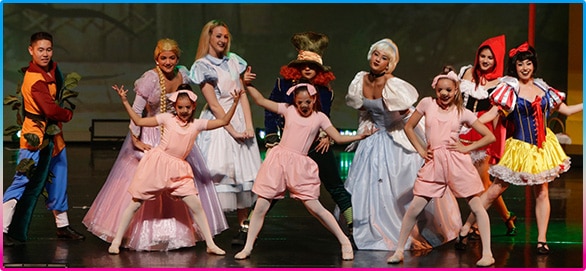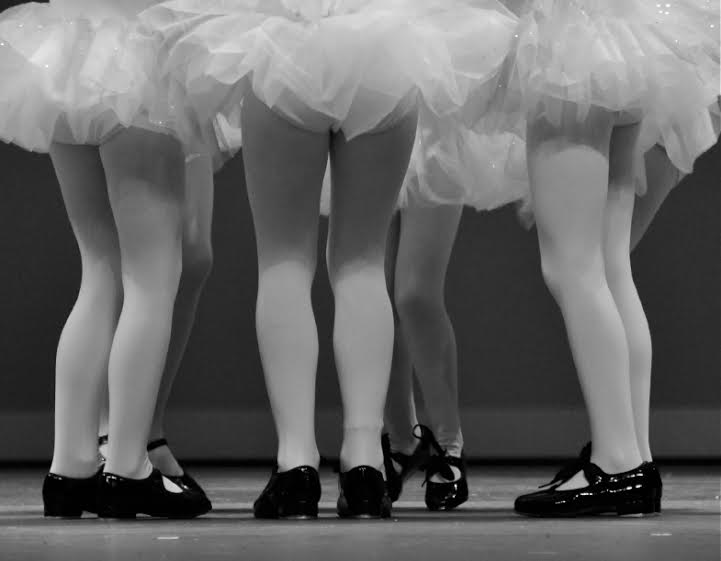Many parents who are considering children’s dance classes for their young ones may find their child hesitant when their first day of lessons arrives. It is common for children to experience stage fright when they need to present, talk, perform, or act in front of an audience—even adults get stage fright. Getting up in front of class to demonstrate a dance move, or to perform a full routine can be nerve-wracking, so here are some tips to help your child overcome stage fright.
Possible Causes of Stage Fright
There are many different reasons why your child might be experiencing stage fright. Knowing why is just as important as finding solutions to boost their confidence. Here are some reasons why kids may experience stage fright:
- Lacking confidence in their performance
- Previously suffered failure or ridicule in front of an audience
- Comparing themselves to other students
- Low self-esteem
- Worried about being made fun of while performing
To help your child focus on what’s important, here are some ways to relieve their anxiety and make them feel confident about their performance.
Tell Them Nerves Are Normal and Okay
It’s important to help your child realize that their emotions are natural and that they are not alone. If they have been working hard to prepare for a presentation but feel nervous to get on stage, instead of shrugging it off and telling them they’ll be fine, reassure them by telling them, “I’m sure the other children are nervous, too.” Then, you can help them get ready by calming them down, and helping them tackle one task at a time to prepare for their performance.
Get Them in the Right State of Mind
Helping your child understand that their anxious feelings about presenting are normal will reduce the confusion and shame they may be feeling. The empathy you have for your child will encourage them to express their concerns to you in the future. But once you have done this, the next step is to help your child focus on this opportunity they have to share and express something they care about. Get them excited for this amazing chance to have a room full of people seeing their hard work and talent pay off. Turning their nervousness into excitement and enthusiasm will do wonders for their confidence.
Talk Strategy
You cannot attend the dance classes or performances in place of your child, but you can talk to them about their plan. Share your personal experiences with giving presentations, and talk about the things you did right and what you would improve. Going though a strategy with your child can help them get ideas about how to do their best job and engage the audience’s attention.
Help Them Relax
Your child will feel less nervous about their performance if their nerves are relaxed. One exercise that can help your child break the nervousness is to breathe deeply. Teach them how to relax by breathing in deeply and slowly exhaling. By doing this, it encourages their mind and body to relax and the feeling of air going in and out of the lungs is soothing and relieves pressure. Ask your child to close their eyes as they do this, and release any fears or negative emotions they may be feeling.
Prepare and Practice
Did you know it takes about 10,000 hours to perfect a skill? That means it takes the average person six to ten years to become great at something, depending on how many hours they practice each day. Helping your child understand that becoming a great dancer requires preparation and practice will help them feel confident that they are working towards a greater goal.
Take Care of Their Appearance
It may be possible that your child’s stage fright is because they are not confident about their appearance. Before their performance, ensure they look their very best. If they feel sensitive about any part of their body, help them learn to love their figure by telling them they look wonderful. Give them compliments as they prepare for their performance and help them choose outfits that make them feel good.
Assure Them That You Will Be There the Entire Time
There is something comforting to a child about knowing their parent will be within reach when they are feeling anxious. Before their dance class, take some time to assure your child that you will be there the entire time, ready and waiting to embrace them after their class. Let them know that no matter how they performed in class, you love them and appreciate their efforts. If they are performing, make sure they can see you from the audience. It will do wonders for their confidence.
Appreciate Their Performance
After their class or presentation, show appreciation for your child and encourage them to strive for better next time. Even if they made mistakes, picking on their errors will harm their self-esteem. Instead, focus on what they did well, and help them work on their weaknesses.
How Performing Dance Arts Can Help Your Child Overcome Stage Fright
If your child is suffering from stage fright, but they love to dance, choosing the right instructor and classroom setting can make all the difference. Finding the right dance school for your child is key to their comfort levels. At Performing Dance Arts, we provide students with extraordinary instructors that are certified and trained to teach your child how to dance and how to work well as part of a team. Our classrooms encourage a positive environment, and there is no bullying or teasing allowed. Our students work together as a team and are taught to respect and appreciate each other.
Let your child experience the joys of dance by contacting us today. We will provide you with all the information you need to know about our programs, and how we can help your child feel comfortable. Or, you can visit our Toronto dance studios to see our studio for yourself!




